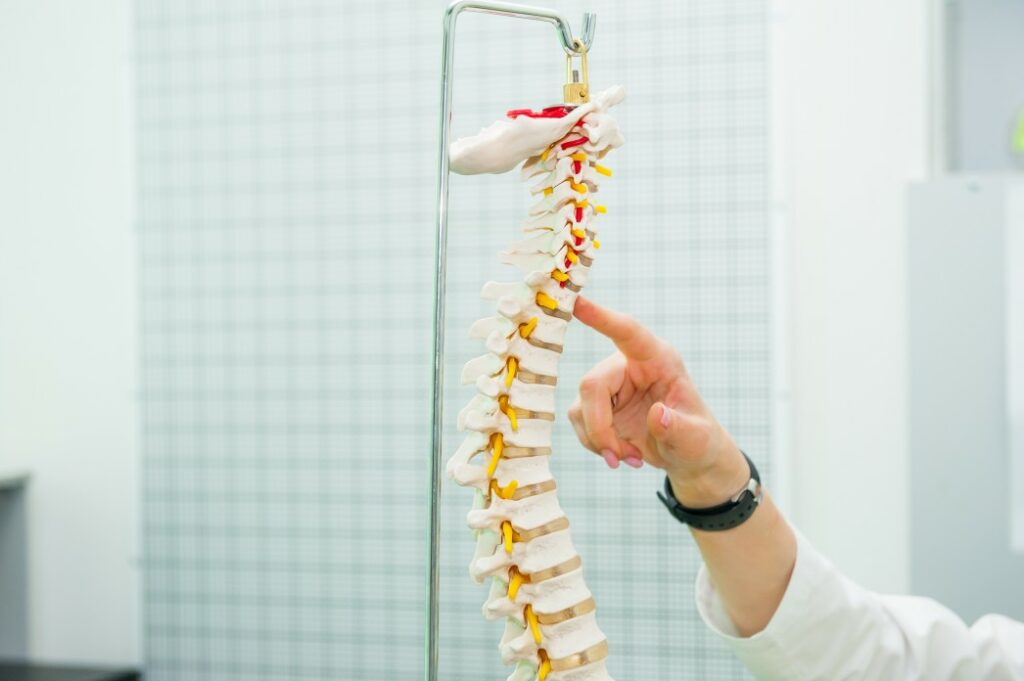

Top 10 Benefits of Pain Management Doctors
Pain is a frequent condition and the most prevalent cause for seeing a healthcare professional. Injuries to the body can be detected early on because pain signals the presence of the injury to your body.
Pain relief isn't always as simple as popping a pill. Chronic pain is a lot more complicated than a simple headache.
Who is a pain management doctor?
Pain management doctors are experts in diagnosing and treating many acute and chronic pain conditions. Working with a specialist rather than a primary care physician when dealing with pain is becoming increasingly vital as this profession grows and becomes more and more complicated.
A pain management doctor may work in a pain management clinic. These are clinics that specialize in chronic pain diagnosis and treatment.
Among other types, patients with back and neck pain may benefit from one approach, which focuses on specific procedures to address such issues.
A pain management doctor:
- Takes the time to do an in-depth examination of the patient's persistent pain.
- Considers a patient's specific medical condition and severity degree while prescribing and administering medication.
- Performs operations such as administering nerve blocks.
- Takes into account the patient's medical history and relates it to the current ongoing symptoms.
- Uses specialized equipment and therapy solutions for certain types of chronic pain are readily available.
- Knows what medications are available to treat chronic pain and how to administer them
- Organizes additional medical assistance, such as physical and psychological rehabilitative treatment.
On the other hand, an interdisciplinary clinic provides a holistic approach to patient care, focusing on the individual's whole well-being. It has health care practitioners proficient in various cognitive and procedural skills and can handle a variety of medical disorders.
Consult your doctor about being referred to a pain management specialist. Most of the time, the doctor may refer you to them when dealing with chronic pain.
The importance of pain management

Pain is typically viewed as a purely physical sensation by the general population, but it combines biological, psychological, and emotional aspects. It would be best to address these aspects of pain and not mask the pain to treat it properly.
Patients with chronic pain may benefit from medical therapies, including psychological treatment. You can lessen the severity of the pain by learning to control the thoughts, feelings, and behaviors that go along with it.
Patients in pain management clinics can benefit from various treatments, including physical, cognitive, behavioral, and emotional therapies. Besides teaching you about your pain, they may also offer advice on improving your lifestyle and recommend complementary or alternative medicines.
The Benefits of Pain Management
Many patients trust their primary care physician to receive all of their medical advice and care from them. This is regardless of being diagnosed with chronic pain.
Pain management is best done by a specialist specifying your particular chronic pain type.
A pain specialist may help you if you're having trouble controlling your pain. Seeing a pain management doctor has many perks, and it's worth it to acquire a recommendation from someone you trust.
Some of the cons of pain management include:
1. Access to personalized care
No two patients are ever the same; tailored care is therefore essential. Medications, interventional therapy, and physical and psychological therapy are all available with the help of a pain specialist, all customized to meet a patient's specific needs.
Numerous issues can contribute to the development of chronic pain. Some of them are lifestyle-related such as diet, weight, posture, and exercise. Your doctor can assess these aspects and devise a treatment strategy that yields the most remarkable outcomes for you.
A pain management facility may have some professionals to help a patient do so. Some of them include nurses, nutritionists, and physiotherapists.
2. Reduces reliance on strong pain medications

Pain medications are prescribed to patients with chronic pain to assist in alleviating their symptoms. If you are using strong painkillers like opioids, they may be helpful but damaging if they are not monitored.
An opioid is a class of medicine that is used to treat pain. They lessen the intensity of pain signals to the brain.
These drugs include hydrocodone, oxycodone, codeine, morphine, and other opiates. Opioids were used to treat long-term pain, which led to an increased opioid dependence among many patients in primary care who received them for chronic pain.
Oral morphine is preferred to injectable morphine for those with severe chronic pain. A fentanyl patch is used in opioid-tolerant patients with chronic pain who cannot take morphine orally.
It may be challenging to manage the potential side effects of opioids.
Adverse effects of opioids on pain management
There are several harmful side effects of opioids, but the most dangerous one is respiratory depression(hypoventilation), which can be fatal in the event of an accidental overdose. Nausea, vomiting, constipation, and drowsiness are among opioid withdrawal symptoms.
Constipation, nausea, and vomiting associated with fentanyl may be less severe than those associated with other opioids. Using fentanyl patches may cause erythema or skin irritation because of its adhesives.
A pain management specialist reduces the chances of adverse side effects and dependency due to tolerance of pain-relieving medications. It is difficult to manage chronic pain without pain medications for patients without specialized treatment as a doctor needs to overlook the patient's condition.
3. Helps determine the causes of pain
As part of pain management, it's crucial to determine the fundamental cause of your discomfort. Pain doctors are best positioned to determine the source of a patient's pain.
Depending on the doctor's recommendations, a patient undergoes various tests with specialized equipment to find the root cause of pain. It will be much easier for your doctor to develop a treatment plan that addresses your unique illness once the cause is determined.
Why is this important? Sometimes pain doesn't stem from where it is felt but other causing factors. For example, heel pain may be caused by a tight Achilles tendon or weak supporting muscles, but the pain is felt on the heel.
4. Relieves stress
It's stressful to live with a debilitating illness. Stress can cause pain by causing muscle tension or spasms.
Controlling your feelings can significantly impact how painful a situation is for you. Stress can result in a wide range of health issues, including high blood pressure, heart disease, depression, and anxiety.
You can't avoid stress, but if you manage your stress, it will benefit your body and mind and minimize the pain you feel. Chronic pain can be worsened by stress.
Cortisol levels rise in response to stress leading to increased pain over time. With chronic pain, you're continually thinking about it, and it might make you feel like you can't accomplish the things you want to.
Having difficulty managing your pain can harm your emotions—you may be angry, frustrated, nervous, or sad. For the most part, you won't even be in pain, but you'll be anxious about doing something that will trigger it.
If you're dealing with chronic pain-related stress, a psychologist can help.
Stress can be reduced by adopting a healthy way of living. Stress management techniques such as meditation and breathing exercises can be taught to you by psychologists.
5. Access to new and researched healthcare options
The field of pain medicine and management is continually being researched and improved upon. A patient can take advantage of the most up-to-date methods of treating pain more quickly by visiting a pain specialist.
A general doctor may not be aware of the most recent medical developments, but a specialist in pain management is. Patients with musculoskeletal disorders will benefit greatly from new advances in pain management, as this form of chronic pain can only be alleviated by seeing a pain doctor.
Some of the new pain management options available at a pain management facility include:
An integrated approach to pain management uses various treatment modalities such as electrostimulation (ESI), radiofrequency (RF) ablation, injections, and nerve blocks.
Injections or nerve blocks are also commonly used to alleviate pain symptoms through electrostimulation or radiofrequency procedures and surgery.
Injection therapy can often be used with pain physicians' radiofrequency ablation and fluoroscopy.
6. Helps improve posture

While pain is directly linked to posture, poor posture doesn't lead to pain and doesn't cause pain. There is no correlation between poor posture and pain because each person has a distinct anatomical profile.
When it comes to standing, sitting, or moving freely, the size and shape of one's bones and how the other locomotory structures adapt around them lead to one's unique posture. Any misalignment in the assumed good posture will be best for the other individual.
It's unhelpful to compare your posture to a flawless model and then make improvements. Poor posture can be corrected with the help of chiropractic care if the root cause is a misalignment in the structures and not any other pain-causing factors.
Pain can, however, lead to poor posture. Take, for example, leg pain(link); we will change our gait to accommodate the pain to allow us to move.
Addressing the cause of the pain can prevent poor posture over time. This can also be aided by using short-term posture correctors and physiotherapy.
7. Improves performance
Motor control is the capacity to regulate or direct the body's movement mechanism. Movement results from a three-way relationship between the individual, the environment, and the activity at hand.
Different body parts work together to create movement aided by cognitive and sensory action. People's movements are altered by pain, whether it's imminent, present, resolving, or even a prelude which might be good or bad depending on the situation.
Movement is essential to the body's ability to interact with the environment. Performance is limited by pain which hinders us from conducting our day-to-day activities such as working, sports, or even basics such as walking or brushing our teeth.
As mentioned earlier, changing your gait as a positive response to heel pain can help reduce stress on the injured members and possibly more damage. This will, however, upset the balance of workload between the associated structures leading to soreness or stiffness in these areas.
There will be an endless cycle of posture alignment with different mobility challenges, which may result in injury of other structures. In the event of damage, chiropractic adjustments may be helpful.
A patient may benefit from spinal adjustments, which could be attributed to improved joint motion and less pain. Visiting a pain management doctor helps reduce the impact of pain on mobility.
8. Establishment of a good patient-doctor relationship
A pain doctor is well-versed in all aspects of pain management. The kind of pain a patient may be having may have been witnessed before, unlike with a general practitioner.
When you describe your symptoms, you won't be met with a blank gaze, and if it is a unique case, you will be able to acquire diagnosis and treatment within and outside the confinements of the symptoms for effective pain management. This means you will receive personalized treatment, including crossing out any related conditions to your current symptoms.
Communication is as important as everything else in advanced pain treatment. There is a better chance of getting to the bottom of your pain if you are more honest with them.
Your pain doctor will understand if you are entirely honest about how you feel physically and emotionally. This can be achieved through a good relationship with them after establishing a safe space assured of good services.
Honesty about the effectiveness of your treatment is also essential since the doctor will be able to adjust your treatment until you are satisfied. This is important, especially if you aren't experiencing any improvement in your pain.
9. Eases acute body pain and prevents chronic pain

Acute body pain often becomes chronic with every remission. This might be due to the deterioration of specific body structures, such as the intervertebral discs.
Acute pain often passes as short-term pain from activities such as sports or work. Certain conditions can be treated if they are discovered earlier.
Your acute pain could be a developing condition diagnosable and treatable by a pain specialist. Some of them include osteoarthritis symptoms and back pain.
When cartilage in a joint wears down, the bones rub together, causing osteoarthritis to form. Visiting a pain specialist may help diagnose and treat this condition leading to less pain.
Back pain is a common problem since the back is involved in most movements. Back-related issues can be alleviated through injections, physical therapy, and surgery, often a last resort to the available treatment options.
A pain specialist may refer you to a chiropractor to correct your joints and minimize the amount of friction between your bones.
A chiropractor offers non-invasive spinal and other musculoskeletal procedures to fix persistent pain in many body sections. Some may even be caused by a misaligned joint pressing against a nerve that causes pain during specific movements.
10. Improves mental health
Pain affects a patient not only physically but also emotionally and mentally. Chronic pain may cause stress which may result in anxiety and depression.
Psychologists may be recommended to patients with persistent pain by other medical professionals. Psychologists and other medical experts can work together to alleviate a patient's physical and mental suffering.
The psychologist will inquire about the nature of your pain, where it happens, how it might be influenced, and any other conditions you may be experiencing. To begin developing a treatment plan, the psychologist will need a thorough grasp of your difficulties.
To begin developing a treatment plan, the psychologist will need a thorough grasp of your difficulties. A psychologist can also assist you in altering your way of life so that you can continue to engage in work and leisure pursuits, including better sleep, as insomnia often accompanies chronic pain.
Extra Insight:
We asked a psychiatrist to give us insight into how patients' mental well-being has improved after achieving a satisfactory level of pain management. Here is what we got:
"In my practice, although we don't directly treat pain, we frequently encounter patients whose emotional distress is compounded by chronic pain. Managing this pain can drastically reduce their feelings of anxiety or depression. Moreover, achieving satisfactory pain management can enable them to return to activities or routines that enhance their quality of life and mental contentment.
Overall, effective pain management should not be overlooked as it often forms a critical part of the holistic approach needed for improving a patient's overall mental well-being. The connection between physical pain and mental health only underscores the need for collaboration and communication between the different medical professionals involved in a patient's care."
Kimberly Kuopus | Dual Board Certified Psychiatric Mental Health Nurse Practitioner | Psychiatric Nurse Practitioner in Phoenix, AZ.
Common aspects of pain management
With the aid of relevant professionals and equipment, a pain management doctor can offer a treatment plan grounded in research and industry standards. A comprehensive approach to pain management is the most effective in minimizing your pain.
Some of the beneficial services offered by a pain management specialist include:
1. Physical medicine and rehabilitation (Physiatry)
Patients affected by pain can benefit from rehabilitation since it helps them become as self-sufficient as possible in their daily routines and allows them to participate in meaningful activities. Physiatry aims to improve and restore their ability to function and their quality of life.
Physiatrists focus on Acute and chronic pain, physical or cognitive impairments, and limitations caused by musculoskeletal, neurological, and other disorders. They prevent, diagnose, treat, and rehabilitate various illnesses and injuries.
2. Addiction treatment
Depression, anxiety, and other behavioral health disorders may accompany chronic pain in patients. Specialists in mental health can assist patients in traversing these intricacies, enhancing their perception of pain.
Pain medication like opioids can easily be overused for patients with chronic pain. A doctor typically ups the dosage as the patient tolerates the pain medication.
The medication is generally supposed to be used for the period of treatment to alleviate pain as the body heals or other solutions to relieve the pain are found. Aside from addiction, the patient's underlying mental health issues are also focused on when rehabilitating them.
3. Pain Coping Skills Training (PCST)
To assist patients in coping with their pain and feel more in control, this non-pharmaceutical method teaches them cognitive and behavioral skills. With the help of a health psychologist, chronic pain sufferers can develop coping mechanisms to help them cope with their condition.
As a result of their chronic pain, many people find it challenging to keep up with their typical daily routines. They may become socially withdrawn, uninvolved, unhappy, and afraid of experiencing further pain. It's not just the pain causing these changes but the suffering itself.
Pain coping skills encourage people to take a more active role in managing their pain. Chronic pain sufferers can regain control of their lives through these approaches, even though they cannot eliminate the underlying medical conditions that cause their pain.
4. Interventional pain management procedures

Interventional pain management aims to alleviate pain and improve the quality of life for patients by employing pain-blocking procedures. They involve surgical operations, electrostimulation, implanted drug delivery systems, radiofrequency procedures, injections or nerve blocks, or other approaches to alleviate pain.
They may be used with other pain management techniques, such as therapy and prescription drugs. Pain management includes more than just medication; it may also include physical therapy, minimally invasive procedures, and other approaches such as cognitive-behavioral therapy and complementary and alternative medicine.
FAQs:
What pain management methods are available?
Your doctor may recommend an array of treatment options based on the severity of your disease. In addition to medication, combining these therapies, rather than just one at a time, helps get the best results.
Many forms of therapy, including medicine, can help ease your pain at its worst. Some treatment options include:
1. Massage
2. Occupation Therapy
3. Physical Therapy
4. Cognitive-behavioral therapy CBT
5. Hydrotherapy
6. Chiropractic Care
When and why should you book an appointment with a pain management doctor?
Patients should contact a pain management professional if the pain spreads to the entire body.
When you're in constant agony, it's hard to focus on the things that matter most in life. A low standard of living might make you depressed and dissatisfied with your life.
Work and family will suffer if you don't find relief from your suffering. A pain doctor's job is to diagnose and treat acute and long-term pain.
Because of their specialized training, they can detect problems that general practitioners could miss and administer therapies they can only obtain.
Some of the warning indications that something more serious is going on include:
1. Pain, stiffness, heaviness, or numbness that appears out of nowhere.
2. Urinary incontinence.
3. High fever.
4. Severe stomach aches.
5. Weight loss that can't be explained.
Why is pain management after treatment critical?
Pain management is a top goal for both you and your doctors after invasive treatments like surgery. Pain management is necessary to help you heal more quickly and lower your risk of developing other conditions.
It can also hasten your recovery. Tell your doctor if you often take pain medication at home or have allergies or intolerances to any specific pain drugs.
You should also notify your doctor if the pain management options are ineffective.
Who Can Help Manage My Pain?
After a major invasive procedure, you and your doctor will decide on the best method of pain management for you. Your surgeon may consult a pain expert to assist in managing your post-operative pain.
Your medical and surgical record, as well as the results of any laboratory tests and a physical exam, will be reviewed by your pain management specialist. You are ultimately responsible for deciding which form of pain management is most appropriate for you.
After that, they'll be able to tell you which kind of pain medication will work best for you and keep you as comfortable as possible. Cutting back on the pain and improving your quality of life are the main goals to allow you to return to work by receiving treatment at a pain clinic that teaches you how to manage your chronic pain independently.
You'll have regular checkups to ensure everything is going well and that you're safe. Your pain management plan may be altered if this is deemed essential.
Our team at Atlas Pain Specialists is well aware of the negative impact chronic pain can have on a person's life. We begin by determining the cause of the problem before prescribing medication as a common practice among general practitioners.
About Dr. Sean Ormond



